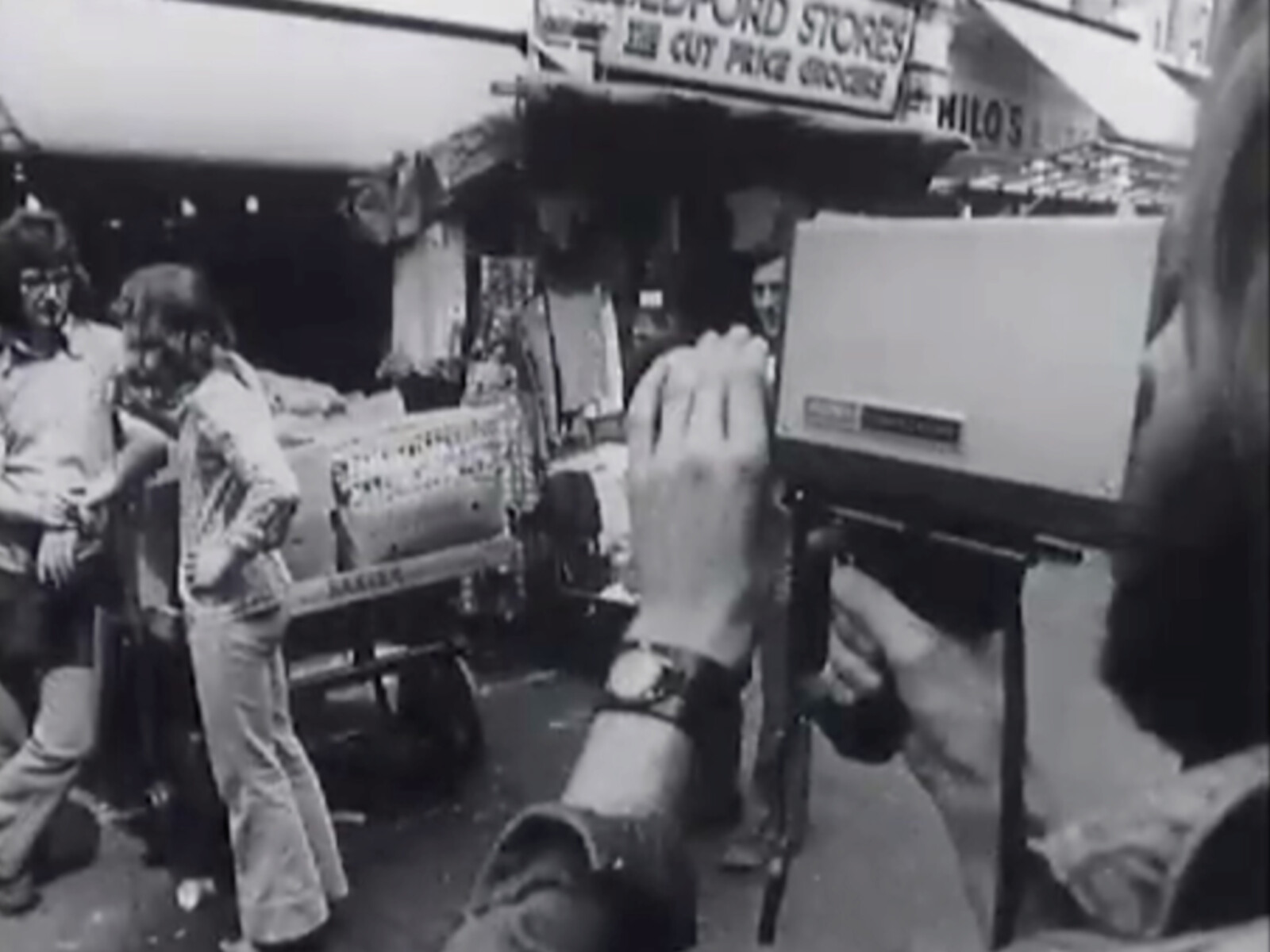January 28–March 26, 2023
Raven Row reopens after a five-year hiatus with an exhibition of television made by campaigners and community groups during the 1970s and early ’80s. Remarkably, much of this emerged from an outlying department of the BBC—the Community Programme Unit (CPU). Set up in 1972, the CPU was inspired by the community access television produced by a couple of east coast US cable channels from the late 1960s, as well as community filmmaking in Canada, and contemporary thinking about the role of television in participatory democracy. The Unit provided a camera crew and studio, and handed over complete editorial control, to groups and individuals with “voices, attitudes and opinions” hitherto “unheard or seriously neglected,” so they could make their own programmes.
Several hundred campaigning and community groups, and individuals, representing amongst myriad others anarchists, farm workers, Black teachers, women priests, office cleaners, radical housing associations, trans women, ex-cons, situationists, film co-ops, neurodiverse people, freethinkers and channelers of the extra-terrestrial, produced autonomous material that was broadcast on BBC2 between 1973 and 1983 in a series called Open Door. This exhibition features 100 Open Door programmes (from a total of 243), almost none of which have been seen since their original broadcast. This raw, often formally inventive television comprises a vivid archive of social history, and direct testimony of the concerns and struggles of a tumultuous decade.
Simultaneously to the beginning of what became known as public-access television on the BBC, the UK government, also influenced by initiatives in North America, granted licences enabling commercial cable companies to add a channel of local content alongside the national and regional channels they offered to subscribers. The programmes they produced, with skeleton crews, volunteers, community activists and artists, reveal the possibilities of hyper-local television. These groundbreaking communication experiments, however, were short-lived. Five of the six licenced channels lasted no more than a few years. While much of their output has been lost, this exhibition reveals rare footage from Bristol, Sheffield, Swindon and Milton Keynes.
A free publication accompanies the exhibition, featuring texts by Rosa Campbell, Naseem Khan, Peter Lewis, Giles Oakley and Clive Nwonka. Two events at the Bishopsgate Institute, convening producers from the Community Programme Unit, and community activists and station managers working on UK cable channels, will take place on 11 and 25 March. People Make Television is curated by Lori E Allen, William Fowler, Matthew Harle and Alex Sainsbury.
Events
Community Cable Television in the 1970s: March 11, 2–6pm
Discussion and screenings exploring the history and legacy of community cable TV in the UK.
Public Access Television, the Community Programme Unit and the BBC: March 25, 2–6pm
A landmark event convening producers from the BBC’s Community Programme Unit alongside Open Door programme-makers, community activists, media historians and theorists.


